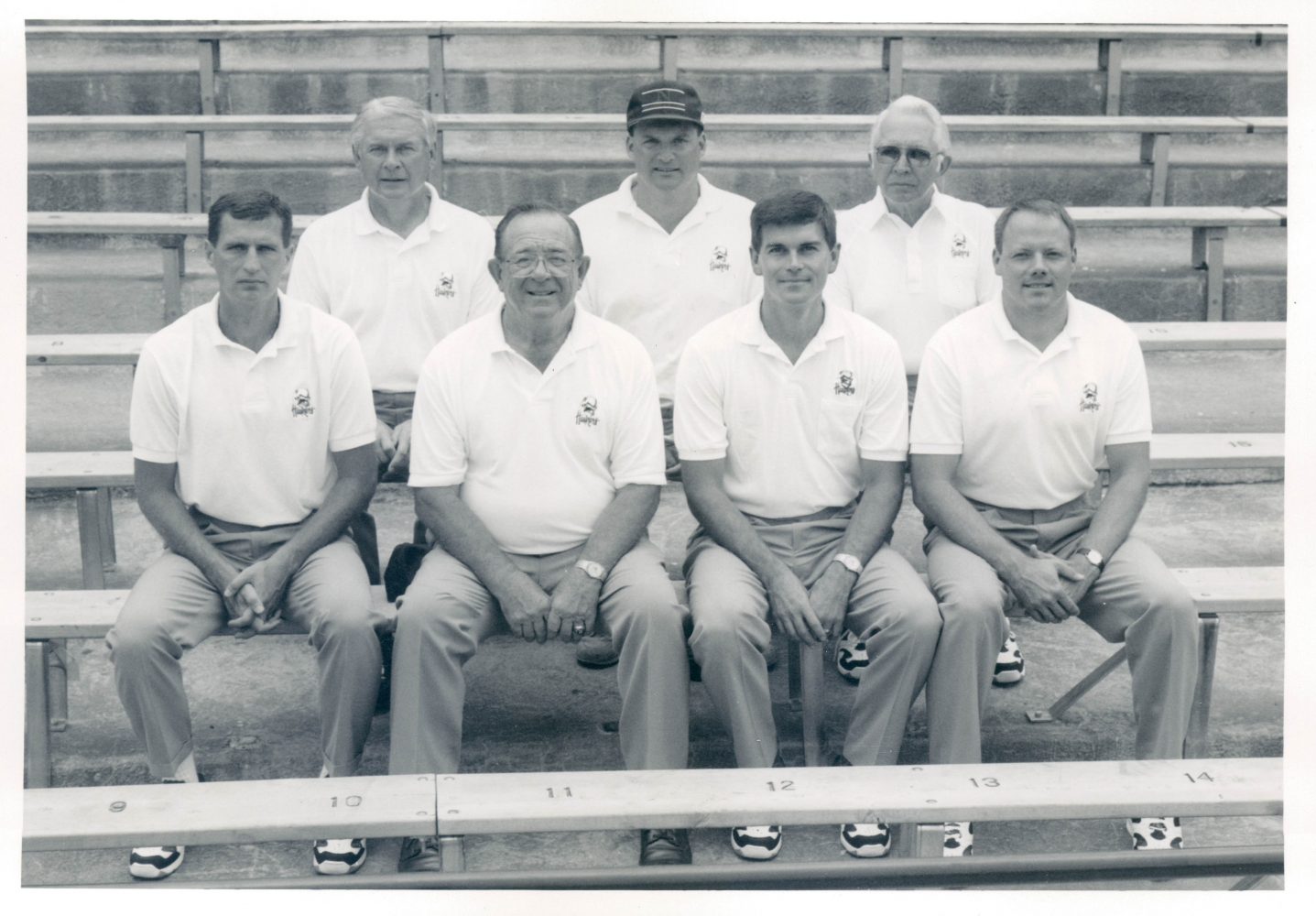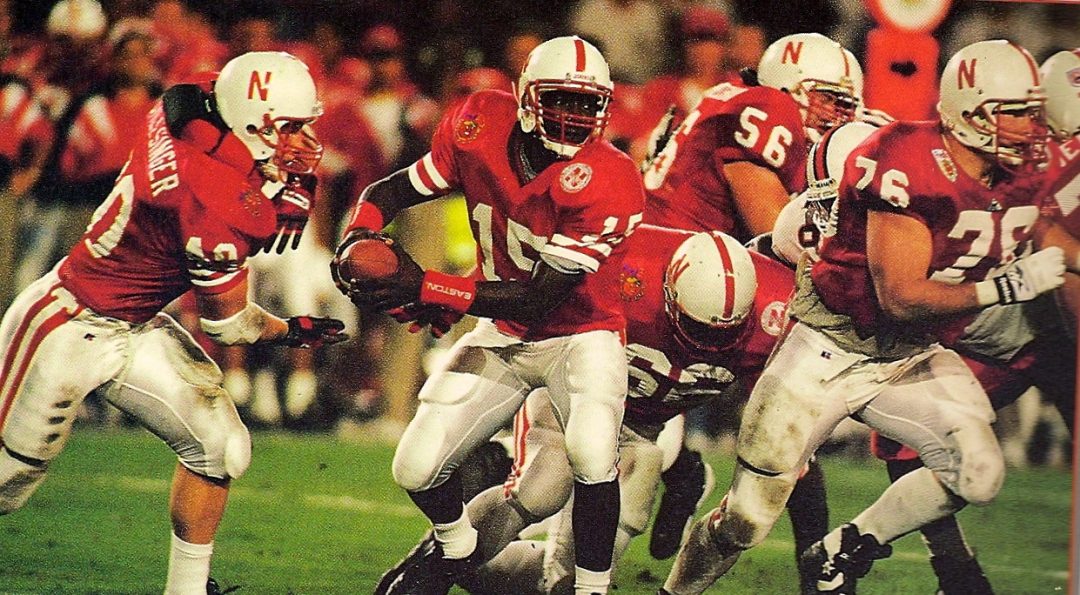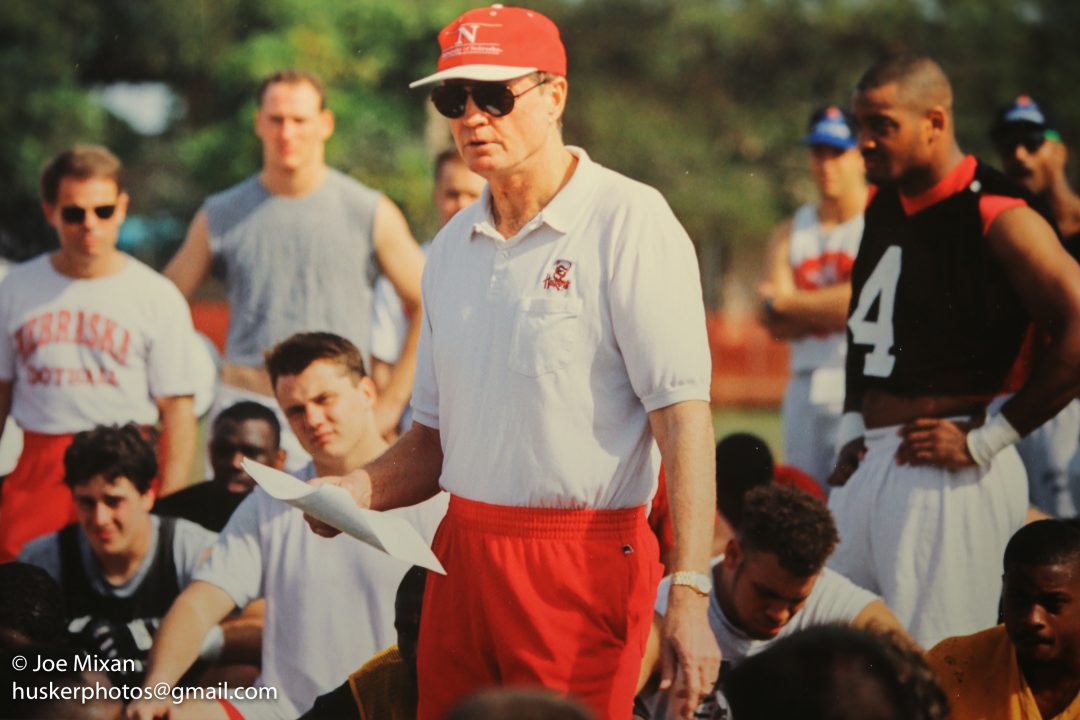Anatomy of an Era: Jack Nickolite, Athletic Trainer, Part 2

Excerpted from Chapter 41, No Place Like Nebraska: Anatomy of an Era, Vol. 1 by Paul Koch
Anatomy of an Era: Jack Nickolite, Athletic Trainer, Part 2
Continued…
Q: Do you have a favorite game?
JN: I don’t think I have favorite game. I’d say they were all memorable and I enjoyed every single one of them. It’s the opportunity, it’s about the opportunity.
Q: All those times going down to Miami and the Orange Bowl, did you guys actually get sick of going down there so often?
JN: No, I liked going to Miami because that was usually where the Big 8 Conference Champion went. The goal was always to go to Miami, so if we went there we knew we had a pretty good year. Miami was very good to Nebraska, because Nebraska won national championships there with Bob and with Tom. They probably got a little tired of us being down there all the time -us and Oklahoma- but that goes with the territory.
Q: In your view, was that a pretty tough atmosphere to be in?
JN: Yeah it was, especially if you were playing a Florida school or playing a nearby ACC school because they’d pack the stadium and make it like a home game for them, so it made it pretty tough. They were sold out, so it made it just like a home team.
Q: I heard for the ’95 national championship game versus Miami that Coach Osborne capitulated and actually allowed Miami have its own locker room for the game.
JN: I’m not sure, but that was a very memorable game because it was so up and down. They played well and there was some things happened that didn’t turn out so great, but we had a marvelous finish and came out in the end.

Tommie Frazier back in action after being shelved by a blood clot. (Unknown source)
Q: Those years you were dealing with Tommie and his blood clots and Brook with his collapsed lung… any memories about that?
JN: I worked pretty closely with Tommie Frazier his entire career there at the university. Tommie‘s a great athlete and a great guy, and with his blood clot, that was tough. And then Brook stepped in and played very, very well and had injuries. The collapsed lung, that was kind of touchy and it was dangerous, but trying to keep his lung in good shape and trying to keep him on the field at the same time, it was day by day.
But Brook played very well, and in the end Tommie came back and played in the bowl game, too. It was tough for those two quarterbacks because they went through major injuries that year, and at the end kind of shared some playing time in that Orange Bowl. But maybe sharing time in the Orange Bowl was one of the major reasons we won that game, because they didn’t know who to prepare for. And Tommie was very fresh in that 4th quarter.
Q: That’s when Tommie and Warren Sapp had their special little conversation, wasn’t it?
JN: Yeah, I remember Tommie talking about that. If I recall Sapp said something to the effect of, “Hey Tommie, where’ve you been all game?”
Q: And I believe Tommie answered back, “Hey fat-ass, it’s not where I’ve been. It’s where I’m going!” (laughs)
JN: Exactly. (laughs) But that was a great atmosphere. And you know, we played at Penn State back then, that was really a great football atmosphere. Of course, nearly all the games with Nebraska were that way, back when both Oklahoma and Nebraska were very competitive and played every year for the Big 8 Championship. That NU-OU game was always an incredible atmosphere.
Q: What stands out to you about the field in Norman?
JN: It’s a stadium where the sideline bleachers are a whole lot closer than they are in Lincoln, not a lot of room on that sideline. So when a guy gets thrown into the sideline -it’s not as close as it is in Oklahoma State- we had a guy once get hit out of bounds and slide into the bleacher and really had a nasty laceration of his leg in the Oklahoma game. That was Mickey Joseph, and that was because those bleachers are pretty close to the sideline. But that was a good place to play because of the atmosphere and tradition there. Barry Switzer brought a lot to the table there at Oklahoma. A great guy. And as a coach? College football lost a great one when he left college football, I‘ll tell you that.
Q: Any memorable off-field occurrences?
JN: I just remember the ’95 team had some off the field incidents that were tough on everybody. They were a lot of fun to be with, but there were some distractions.
Q: Why do you suppose that? Just typical college kids? The fishbowl atmosphere in Lincoln?
JN: I think some of both. But at the same time, every college athlete, every athlete high school, college or pro, they’re in the limelight, and you get a couple of guys that do things late at night, you’re gonna read about it the next day. That’s part of the deal.
Q: Were you usually in the locker room pre-game?
JN: Yes, it just depends. Sometimes there are a few things you need to do just before a game: taping, bracing, preparation, just whatever needs to be done.
Q: Any special locker room moment stand out to you?
JN: Absolutely. Coach Osborne’s pregame talks, I enjoyed listening to them. Tom didn’t give a lot of rah-rah speeches before the games. But more than that, the morning before the game and the night before the game when he addressed the team, he instilled confidence. He told them how they were going to play and told them what to expect, and they were very well prepared.
 The Leader of the Band (Joe Mixan)
The Leader of the Band (Joe Mixan)
Q: Eliminating the unknown upped the confidence level so much more?
JN: I think so. Tom set very realistic goals. He didn’t like a lot of secrets, I’ll tell you that.
Q: In what regard do you say that?
JN: Tom would address the football team and how they needed to prepare and what they needed to do. And then the football team goes out and does exactly what Tom tells them to do. But on the other side, Tom also told them what the opposing team was going to do, and so if the opposing team did something very well our guys were prepared for it: they knew how to take it and not be discouraged because of it.
And unbelievably enough, I’d be listening to Tom on the radio as I was driving home from the game and, sure enough, he’d tell the radio people almost the exact same thing he told the football team.
Q: Any memorable pregame speeches stand out to you in particular?
JN: I think against Florida State -we were beaten in that Orange Bowl- and he told them to play like champions. And they really did. That was the standout.

Both volumes available on Amazon.com
Q: Did you ever have occasion to listen to Charlie’s pre-game speeches?
JN: No, mostly Charlie’s halftime speeches. Mostly because the training room -we had a big taping area where Charlie would address the defense- I heard some pretty motivational things there. Charlie told them to get after it. His guys really appreciated that.
Q: Anything about his style, his tenor, his mood, certain choices of words?
JN: Charlie was “no clichés,” but he said the right things in the right way and in the right manner. And he would say it loud and intense and he meant business, and he was right.
Q: So, at one point you decided to go to PA school. When was your last year with the Athletic Department before joining Nebraska Orthopaedic?
JN: I worked with the university up to the summer of ’97. And then left to work with Scott Strassberger out at Nebraska Orthopaedic. I just wanted to do something a little different that would improve my skills as a clinician. I believe, like a lot of people, you’re either getting better or you’re getting worse, never plateaued. So I wanted to get better at the things that I do.
Q: Continually challenging yourself?
JN: Yeah, I wanted to learn a little bit more, and I knew there were some things out there orthopaedically I could get a grasp of and also allow me more family time.
Q: Well said, Jack. So is there anything else we haven’t touched upon that played a part in the success of Nebraska football, specifically those ’90’s teams?
JN: I think it was the caliber of players we had, their character.
And I would also say the people in the athletic department: guys like you and Bailey and Boyd and that staff, Dennis and all those people over in academics, and the coaching staff, the administration. Just go down the list.
Q: Anybody in particular stand out to you, who you had the utmost admiration for?
JN: Pat Clare. He is a great team physician. It takes a heck of a team physician to keep a team on the football field. You’re doing things this year to set yourself up for next year coaching-wise. Same thing goes when an athlete gets hurt, but you’re getting him ready for next year…and you’re trying to patch them up and get them ready for next week. He is very good at that. At Nebraska there was not a lot of pressure as far as getting somebody on the football field, at least with athletic medicine. Tom was very astute on athletic injuries. We got them back when it was safe, but as quickly as we could.
Q: Hey, is former O-lineman Steve Volin with you guys now?
JN: Yes, he’s with us. He’s a great addition. He’s a spine specialist and he’s been with us for a little over two years. I believe he’s our fourth Cornhusker Football graduate in our office.
Q: That’s great to hear. And by the way, are you staying in shape? Remember we used to have those 5 a.m. workouts and then we’d head across the street to the old Denny’s for a Grand Slam, over by the old Big Red Shop?
JN: Remember that day we walked in and Bryan Bailey was hanging upside down from that squat rack? (laughs) Geez to Pete! It was like, ‘What are you doing up there?’ I mean, come on! (laughs)
Q: Bryan was either crazy, creative or both.
JN: You know, Bryan‘s a good guy and he took care of some players and they loved it. Boy, I tell you, that guy? He’s a good guy, too. He’s something else. You could always count on him. He fired up Doak pretty bad. (laughs)
Q: What was the dynamic there between those two?
JN: I think that if a guy just went to work with Bryan Bailey instead of fighting with Bryan Bailey you’d get a whole lot more done. Don’t you think? (laughs)
And I must say, George (Sullivan) did a lot in the development of the pregame meal, now that I think of it. Him and Dr. Kenny Rose. And they were big in the use of nutritional drinks: liquid pregame meals, like a can of Nutriment, those type of things. That is still a very good approach as far as pregame meals. The liquid pregame meal, it’s something you can still use instead of a hard meal, if you will. It’s a good, sound approach.
Q: Here’s a quirky question: what is the oddest injury you ever encountered? Any come to mind?
JN: I’ve heard about all of them. (laughs) We had a guy on the basketball court and he was from another country in Latin America somewhere, and Moe Iba was running wind sprints. And this guy laid down on the basketball court and started pounding his heart, and he said, ”My heart’s going ba-boom ba-boom ba-boom!”, and he refused to run any further. And I told him, ‘I’ll take you over to see Dr. Fuenning.’ And he got up and ran to the dorms. (laughs) Screwball. His name was Victor Ciccone.
End conversation.
I have great admiration for Jack for a number of reasons, the first of which remains his dedication to the health of all walks of human life, student/athletes included. The second is that he was a great workout partner for a number of years, and third is that he was a pleasure to work with. For a time there was an uneasy truce between the Strength Staff and the Athletic Training Staff as to methods, modalities, and which personnel should be conducting rehabilitation for a wide array of slightly injured players. The issue causing most tension was the use of the squat exercise and its effect on knee joint integrity, if I recall. (Team Doctors were eventually called upon to weigh in on the situation, and with their blessing the squat exercise remained part of the regimen) Jack was able to see through that fog quite clearly and find a way to work as a unified staff, a trait for which I commend him.
His reverence and respect are only second to his knowledge of Coach Tom Osborne’s ways, for Jack spent a number of years within the program and even on the periphery in these latter times. It was refreshing and inspiring to hear him say about Tom Osborne, “He never wavered. He knew the best way to run a football program on the collegiate level. And this isn’t the easiest place to recruit players, but he knew it could be done here and he kept after it and he had great teams.” I am absolutely convinced that without the relentless, dogged adherence to bedrock Christian principles, foundational ethics and a steadfast prairie pioneer’s resolve, Tom Osborne would have never achieved such outright leadership greatness, much less his many teams’ stellar accomplishments. In never wavering from the cause of nurturing and guiding those many young men about educational pursuits, football perfection, and dealing with life’s resultant struggles, his system would have been a mere mish-mash of brutish collisions, mangled psyches, and meaningless highlight reels. But it was otherwise, as the 60 & 3 era attests, due to the system Jack Nickolite referred to: Coaching excellence, a Power Offense philosophy, use of the weight room, the medical/training staff, myriad educational aspects, and even the spiritual element.
Notable quote #2:
Jack Nickolite on Tom Osborne’s public/private persona: “Unbelievably enough, I’d be listening to Tom on the radio as I was driving home from the game and, sure enough, he’d tell the radio people almost the exact same thing he told the football team.”
Copyright @ 2013 Thermopylae Press. All Rights Reserved.
Photo Credits : Unknown Original Sources/Updates Welcomed